Trump ordered killing of top Iranian military figure for political reasons: Book
Former US defense secretary Mark Esper in his new book reveals that then-president Donald Trump ordered the assassination of a top Iranian military figure to get re-elected in 2020.
In his forthcoming book ‘A Sacred Oath: Memoirs of a Defense Secretary in Extraordinary Times’, Esper writes that Trump’s national security adviser, Robert O’Brien, “stunned” the chairman of the joint chiefs of staff shortly before the 2020 election by saying that the president wanted to kill a senior Iranian military officer, in an oblique reference to Lieutenant General Qassem Soleimani.
“This was a really bad idea with very big consequences,” Esper writes, adding that General Mark Milley, then-chairman of the joint chiefs of staff, suspected that O’Brien saw the move purely in terms of Trump’s political interests – to get re-elected.
The book describes an administration that was obsessed with Trump’s reelection campaign throughout 2020, according to a report in the New York Times.
The former US defense secretary says Milley told him on August 20 that O’Brien had called the evening before to say that Trump “wanted to strike a senior military officer who was operating outside of Iran.”
General Qassem Soleimani, the commander of the Islamic Revolution Guards Corps (IRGC) Quds Force, and Abu Mahdi al-Muhandis, the second-in-command of Iraq’s Popular Mobilization Units (PMU), were assassinated along with their associates in a US drone strike near Baghdad International Airport on January 3, 2020. The strike was authorized by the US president.
Both anti-terror commanders were deeply respected and admired across the world for their battlefield heroics, especially for their key role in decimating the Daesh terrorist group in the region.
In the book, Esper presents himself as one of those who stoutly resisted Trump’s foolhardy decisions, such as the strike on the top anti-terror commander.
“Milley and I were aware of this person,” Esper writes in the book. “But why now? What was new? Was there an imminent threat? What about gathering the national security team to discuss this?”
Esper cites Milley as saying that he was “stunned” by the call, and sensed that ‘O’Brien put the president up to this, “trying to create news that would help Trump’s re-election.”
Milley, as the former close Trump aide writes, had told O’Brien that he would later discuss the request with Esper and others.
“I couldn’t believe it,” Esper recounts the incident. “I had seen this movie before, where White House aides meet with the president, stir him up, and then serve up one of their ‘great ideas’. But this was a really bad idea with very big consequences. How come folks in the White House didn’t see this?”
On O’Brien suggesting a strike on the Iranian military commander, Esper says that he told Milley he would do nothing without a written order from the sitting president.
“There was no way I was going to unilaterally take such an action,” he writes, “particularly one fraught with a range of legal, diplomatic, political, and military implications, not to mention that it could plunge us into war with Iran.”
Esper also notes that O’Brien’s call to Milley in late August was “the last time something involving Iran seriously came up before the election.”
In retaliation for the cowardly terror strike on Soleimani and his associates, Iran fired a volley of ballistic missiles at two US-run military bases in western Iraq. Code-named ‘Operation Martyr Soleimani’, more than a hundred American forces suffered traumatic brain injuries as a result of the strikes.
The leader of the Islamic Revolution, Ayatollah Seyyed Ali Khamenei, described it as “a slap” on the face of the US regime, calling for the complete withdrawal of American forces from the region.
The top Iranian government and military officials vowed to hunt down the perpetrators, including the operators and enablers, behind the cowardly act.
For their part, Iraqi resistance groups upped the ante following the assassination of Soleimani and Muhandis, vowing to expel the occupying forces from the Iraqi soil.
In the last two years, US forces have faced numerous attacks on their convoys and facilities, while calls for their ouster have grown bigger and louder.
In a report earlier this year, the US State Department said it was spending more than $2 million per month to provide round-the-clock security to former Secretary of State Mike Pompeo, one of the key masterminds of the attack.
According to the leaked report, the cost of protecting Pompeo and former Iran envoy Brian Hook between August 2021 and February 2022 amounted to $13.1 million.
Esper in his book also reveals that Trump asked him in 2020 about launching missiles into Mexico to "destroy the drug labs" and kill cartels.
"We could just shoot some Patriot missiles and take out the labs, quietly," Trump suggested, according to the book, which is expected to create a buzz in intelligentsia circles in coming months.
Trump asserted that Mexico didn't "have control" over its own country and that "no one would know it was us," Esper, who objected to it, recounts in the book, according to the New York Times.
The defense secretary, who was jettisoned for butting heads with the former president over using the military to quell Black Lives Matter protests, reportedly writes that he was also concerned Trump would use the military around Election Day, potentially to seize ballot boxes.
While Esper writes that Trump's behavior never became erratic enough to justify an invocation of the 25th Amendment, the book mentions the chaotic White House focused on Trump's reelection bid.
VIDEO | IAEA adopts anti-Iran resolution tabled by E3
VIDEO | Iran's president urges Pope to help end Israel's onslaught in Gaza
Iran's senior legal official: ICC arrest warrants for Netanyahu ‘great victory'
Nov. 21: ‘Axis of Resistance’ operations against Israeli occupation
VIDEO | Israeli forces storm West Bank’s Jenin again, target civilians
Iran activates advanced centrifuges after IAEA's 'unjust' resolution
VIDEO | Press TV's news headlines
Iran FM: Response to Israeli aggression 'inevitable'


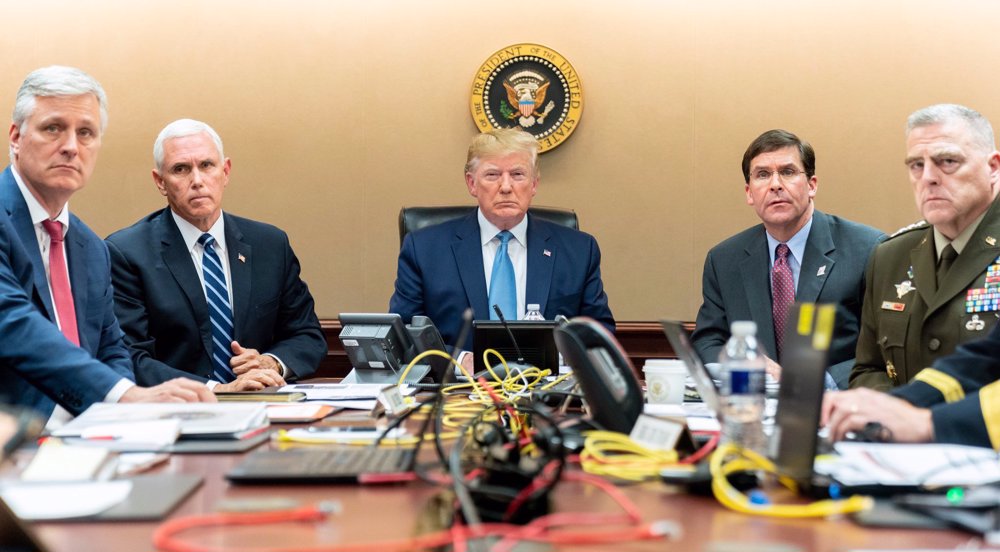
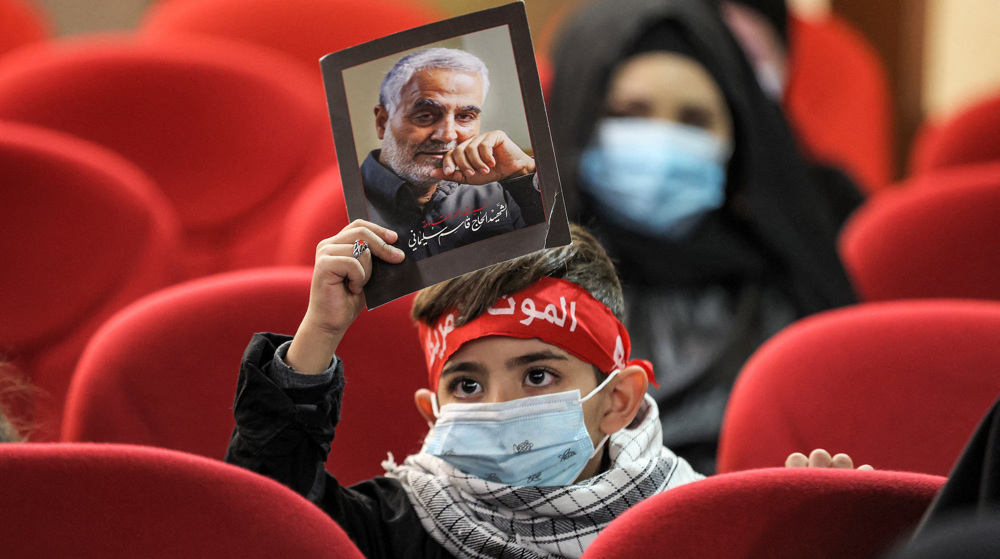
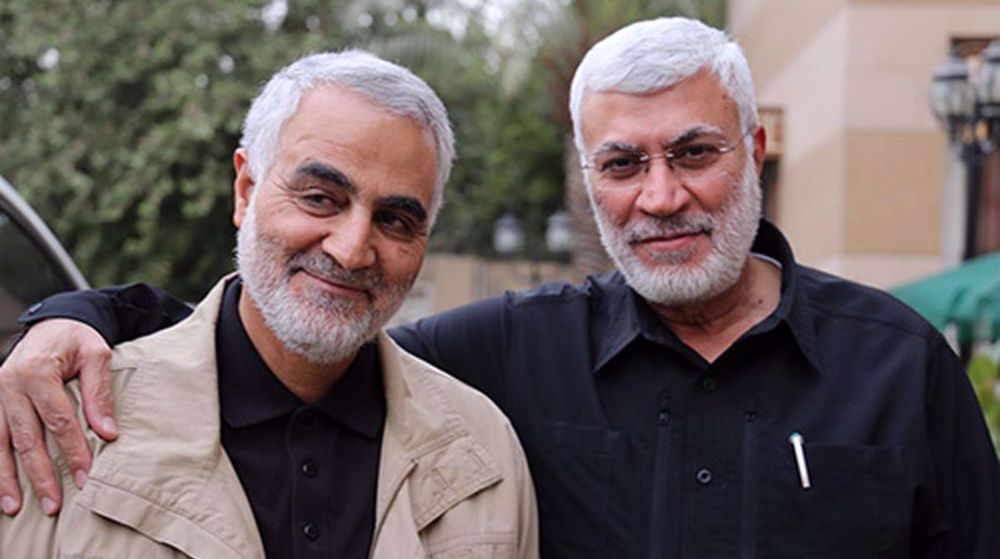
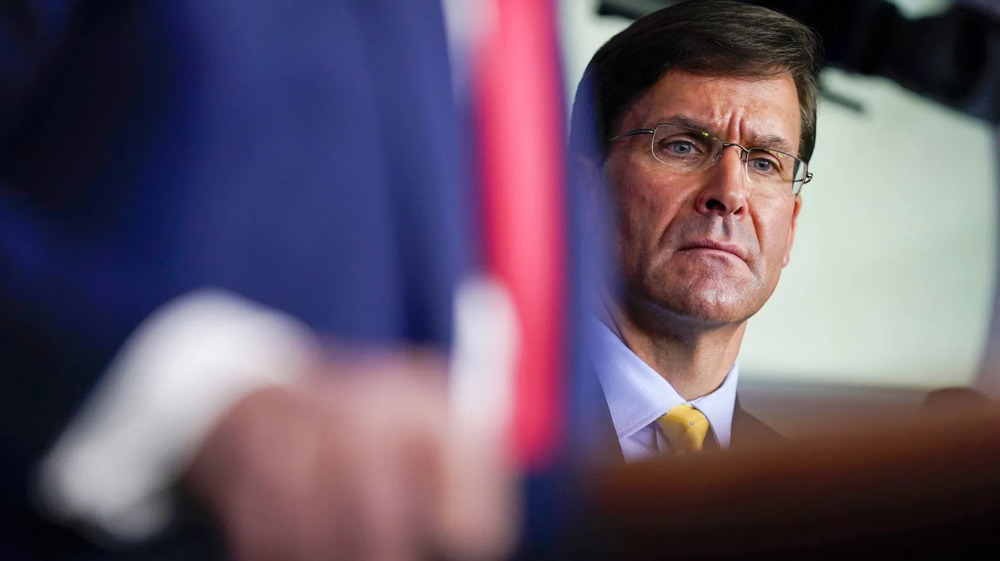

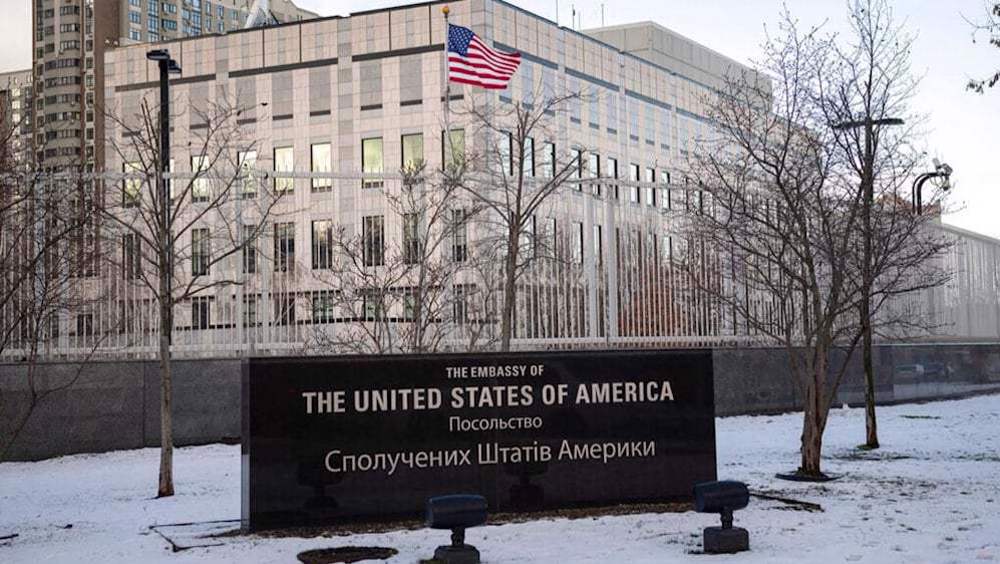
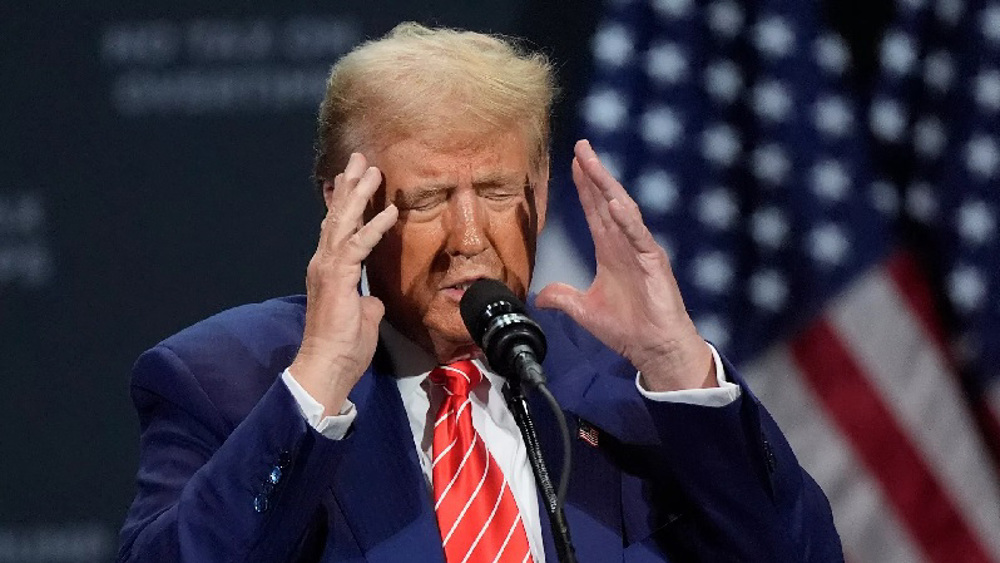



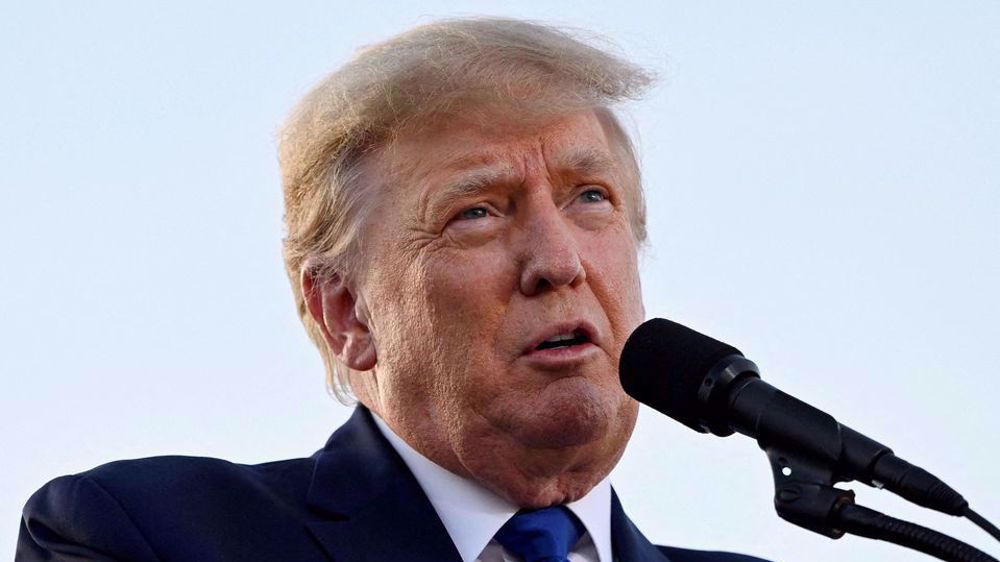
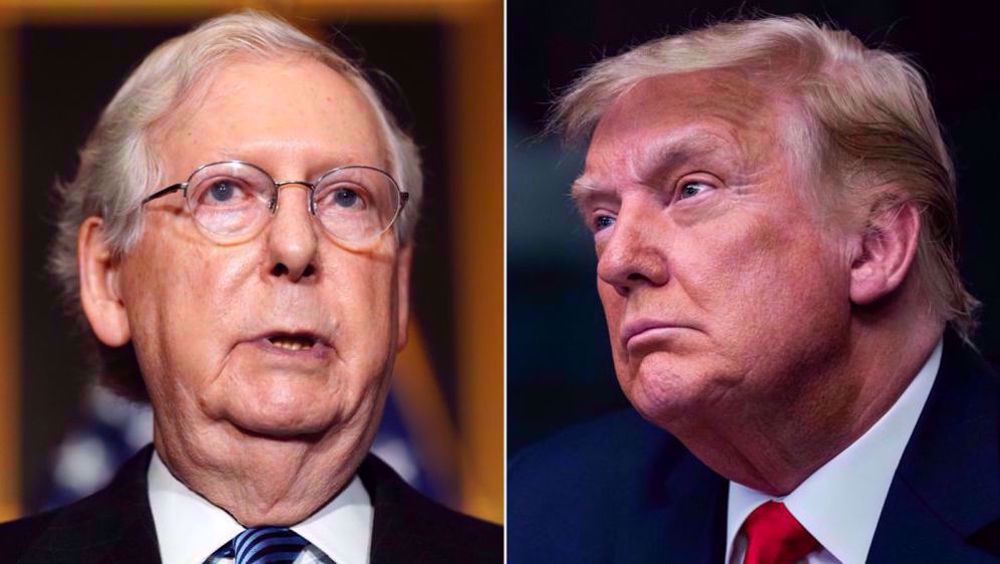
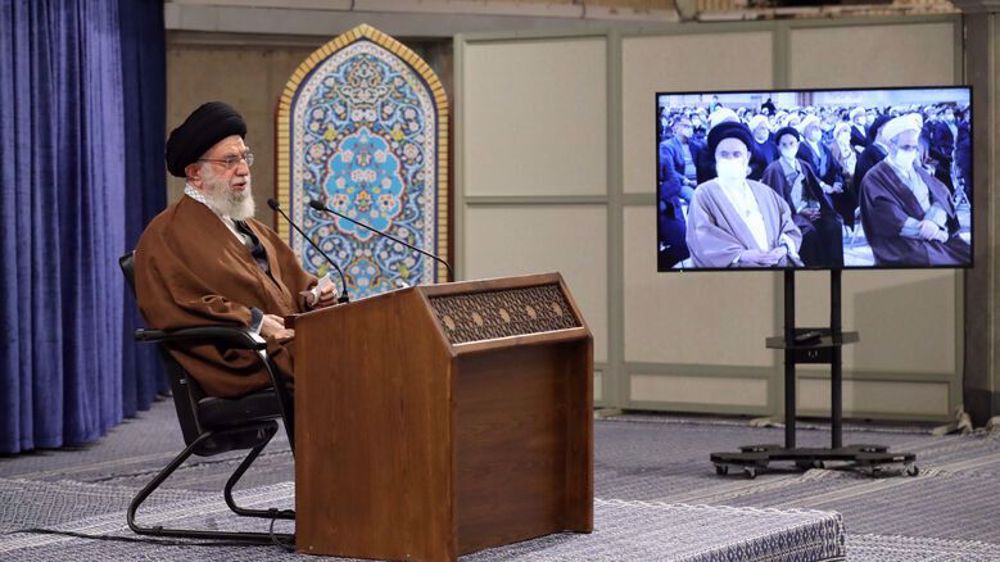

 This makes it easy to access the Press TV website
This makes it easy to access the Press TV website